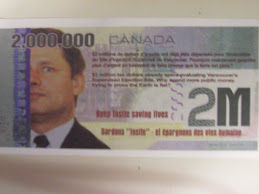Drug injection center idea gets an airing in S.F.
C.W. Nevius
902 words
16 October 2007
The San Francisco Chronicle
5star
D.1
English
© 2007 Hearst Communications Inc., Hearst Newspapers Division. Provided by ProQuest Information and Learning. All Rights Reserved.
Two months ago I wrote about an idea for a place in San Francisco where intravenous drug users could shoot up under the supervision of trained personnel. A lot of people thought it sounded crazy.
Well, get ready to hear about it again, because the idea is gaining momentum.
On Thursday, an all-day symposium - co-hosted by the city Department of Public Health - will examine the idea of creating safe injection centers where users could bring their drugs, shoot up and leave, without fear of arrest.
The idea is to decrease overdoses, keep dirty needles off the street, and cut the risk of spreading HIV and hepatitis C. Those are all good things. It is the idea of providing addicts with their own injection clinic that riles people up.
"What's next?" a reader wrote when the first column appeared. "Giving them the drugs, too?"
No. But there's no doubt that if San Francisco ever established such a center, even as a pilot program, there would be an enormous brouhaha.
"It would be huge international news," said Peter Davidson, a researcher at UCSF in the epidemiology and biostatistics department. "It would be the first facility in the United States, and there would probably be a firestorm for a while."
You can count on that. The conservative radio talk show hosts are probably already jump-starting their tonsils. Wacky San Francisco, providing a party room for junkies.
Nor are public officials eager to jump on the bandwagon. Asked for a comment from Mayor Gavin Newsom, spokesman Nathan Ballard said, "The mayor is not inclined to support this approach, which quite frankly may end up creating more problems than it addresses."
Organizers of Thursday's conference are hardly surprised by that reaction.
"Down the road there will be a lot of strong feelings," said Hilary McQuie, Western director of the Harm Reduction Coalition, a national group that combats the adverse effects of drug use. It is organizing the event.
"It's a big topic, and we hope to start a conversation," McQuie said.
Oh, it'll start all right. But Barbara Garcia, the city's deputy public health director, asked where it will go. "We don't want to create a lot of backlash," she said.
San Francisco and the rest of the country may not be quite ready, but injection centers are
getting a lot attention in other parts of the world. Grant Colfax, director of HIV prevention for the city Public Health Department, says there are now 65 centers in eight countries.
In Vancouver, British Columbia, where an injection clinic opened in 2003, "the data ... seem to show that it is actually a benefit to the community," Colfax said.
Opening a shooting gallery benefits the community? How does that work? Well, Dr. Thomas Kerr, the University of British Columbia physician who has been involved with the Vancouver center since its inception, says it is having success treating addicts, even though they are coming to inject themselves.
"We published a paper in the New England Journal of Medicine that showed that we had a 33 percent increase in the use of detox facilities from our population," Kerr said.
But would the addicts actually use the center? McQuie says they have in other cities, and the reason may be something people don't ordinarily associate with drug users - fear.
"I think that a lot of injectors are very afraid of overdosing and dying," McQuie said. Many overdoses happen when users are alone, she said.
Then there is the question of what neighborhood would host an injection center. Davidson says he thinks the Tenderloin would be the logical place, noting that a 2003 survey in which he took part found that more than a third of the city's overdose deaths occurred within 100 yards of the intersection of Turk Street and Golden Gate Avenue.
McQuie says centers attract a certain type of user, probably one whose health is not the best and who is somewhat desperate.
"It's not for everybody," she said. "It's not the most fun place in the world."
Vancouver's center has small booths where users step in, inject and come out. With scrubbed floors and bright overhead lights, it is sterile in every sense of the word.
"They are really for the people (whose lives) are most chaotic," Kerr said. "Homeless people with mental problems who are likely to use public spaces to inject."
Exactly, in other words, those who have the worst effect on the neighborhood and community.
Ask Garcia. Not long ago she opened the front door of her house and found a man passed out on the stoop. She was able to call an ambulance in time, but he nearly died of an overdose.
"So," she says, "I am sympathetic to the dangers."
The rest of San Francisco should be, too. This is a problem that is on everyone's doorstep.
"The mayor is not inclined to support this (which) may end up creating more problems than it addresses." - Nathan Ballard,, spokesman
C.W. Nevius' column appears Tuesday, Thursday and Sunday. His blog, C.W. Nevius.blog, can be found at sfgate.com. E-mail him at cwnevius@sfchronicle.com.
Wednesday, October 17, 2007
From the San Francisco Chronicle
Posted by
Jen
at
11:36 AM
![]()
![]()
Subscribe to:
Post Comments (Atom)




No comments:
Post a Comment